Point-counterpoint: Pursuing beauty in 200 Pound Beauty
by javabeans
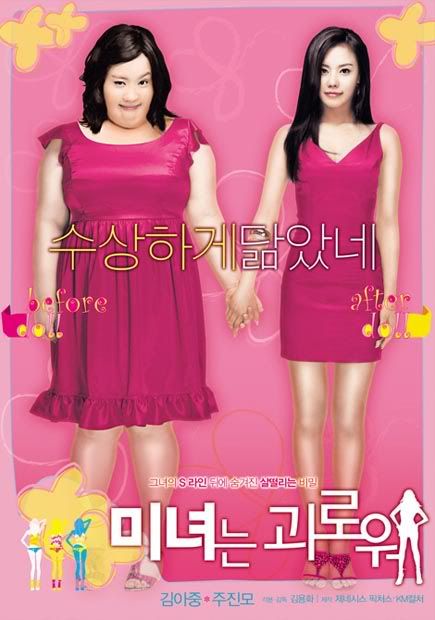
In last week’s Open Thread, a back-and-forth developed between two commenters that caught my eye, because it dealt with a point that had been at the back of my mind for a while. Ever since I first saw the smash 2006 romantic comedy 200 Pound Beauty [미녀는 괴로워], in fact.
The comments dealt with 200 Pound Beauty‘s plastic-surgery themes, and echoed some of my own reservations with the movie. Don’t get me wrong; I totally enjoyed watching it — it was light, funny, nicely acted — but something just didn’t sit right with me at the end. And the conversation that emerged last week captured that debate very well, I thought.
So, I asked both Sere and Samsooki if they would be okay with furthering the discussion in a sort of point-counterpoint conversation (similar to how Dahee and I discussed a particular drama character previously). They’ve both graciously agreed to go with it, and here’s the result.
Hope you enjoy!
SONG OF THE DAY
200 Pound Beauty OST – “Beautiful Girl” by Kim Ah-joong. [ Download ]
Audio clip: Adobe Flash Player (version 9 or above) is required to play this audio clip. Download the latest version here. You also need to have JavaScript enabled in your browser.
For those who are unfamiliar with the film, the gist is:
A good-hearted, overweight backup/ghost singer, Hanna (Kim Ah-joong), has a beautiful singing voice that goes underappreciated given her looks. She’s a sweet optimist despite the demeaning treatment she is subject to and dreams of being a singer (on her own) and has a crush on the producer for whom she works (Joo Jin-mo). When the cruelty goes overboard, however, Hanna decides to get full-body plastic surgery, and for the next year she goes “missing” — cutting off all ties to her former life — as she receives multiple surgeries. When she’s finally “ready” to be revealed in her new body, she’s a beautiful, slim, completely different-looking woman. With her new looks, she gets signed by her former producer and promoted as a “natural beauty,” and takes on the new identity as pop singer “Jenny.” Jenny becomes a smash success, but Hanna (as sweet-hearted as ever) finds it difficult to keep up the lie about her identity.
SAMSOOKI: I watched 200 Pound Beauty with my wife, and I have to say that I really enjoyed the movie… Kim Ah Joong… I didn’t really think the fat suit worked (didn’t look real at all), but who cares. Kim Ah Joong just blisters the screen. Just…. awesome. The songs, the movie, the scenes, the characters… really good.
SERE: I need to know: what’s so great about it?
SAMSOOKI: Well, I thought it was charming: it’s a fairy tale that every person wants to believe in — that we can all turn from ugly ducklings to beautiful swans. And in this case, the transformation was from an obese woman to an unbelievably beautiful girl. But in this case, rather than a magic wand, it was the hand of a plastic surgeon. And in addition to the fairy tale, the acting, the comedy factor and catchy songs sung by the main character, Kim Ah Joong….. hard to ask for more from a movie.
SERE: Personally, I *hated* it. I can’t even begin to list the reasons I feel that way because the sheer number of them frightens me. This is coming from a girl who’s (1) never been slim in her life and therefore can relate to what the main character felt and (2) been through plastic surgery several times (true, I hadn’t them done for the heck of it or to appear more beautiful, but cos it was necessary. I’m talking about reconstructive plastic surgery in my case… but whatever, SO not the point). I do not *get* it.
The premise of the movie feels wrong and the end message of the movie is nothing if not poisonous to girls and young women, imho. Plus, major plastic surgery not only sucks, but it hurts like you wouldn’t believe so anyone willing to put herself through a year of that kind of torture, again and again, is nuts. Of all the patients I met at the plastic surgery ward — and I met many — not one of them underwent an operation with a light heart and no one of them did it *just* to get someone’s heart. I know it’s only fiction, and that there’s some nice music and all, but I truly cannot see the appeal of this movie. So if you can let me know what you see in this, I’d be forever and ever grateful. I’m genuinely curious.
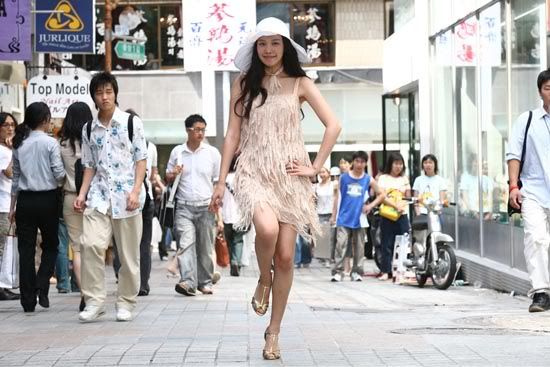
SAMSOOKI: Well, if the audience were to take the movie literally, then we might have problems because the promotion of radical surgery to make your dreams come true is… at the height of irresponsibility. Yet, even without this movie, those ideas are there anyway. And, I don’t think 200 Pound Beauty is trying to say that plastic surgery is the way to go to make your dreams come true. It is merely on a side item. Like, take the movie Terminator 2 with its violence and gun shot victims every minute, etc. Does this movie promote gun violence to achieve one’s goals, because the main characters utilize extreme violence to achieve theirs? The gun violence is not really the point and we accept it to advance the plot.
SERE: But see, that’s exactly the point. Even if you — and it’s a general you, not you Samsooki — don’t take the movie seriously or literally, there’ll always be a number of girls who might shake their head about the message and yet, on some level they’ll be exposed to it. The cat would be out of the bag, so to speak, and I do think that cat, even if it was intended to be mindless entertainment, may be more dangerous than the average one. You know?
You brought up movies such as Terminator…well, of course nobody thinks that it promotes violence, but it’s a sci-fi movie…people do realize it’s not to be taken seriously. With movies like 200 Pound Beauty, the lines are much, *much* more blurred cos it does tackle issues that are contemporary and… real. You said it yourself, beauty is important…we are exposed to it and to its clichés everyday: people get even discriminated because of their looks. That’s why I can only see a potentially dangerous message to this movie.
SAMSOOKI: Or for another example, take almost any romantic movie… Usually, it goes like this: boy meets girl, then take your pick — (fish out of water, mistaken / unknown identity, contract / fake relationship, forbidden love, competing love interests etc.), then boy and girl get together at the end. Does this accurately depict what happens in a relationship? Does anyone know ANY couple whose lives actually resemble Breakfast At Tiffany’s?
SERE: Of course not. But romantic movies usually do not have ulterior motives, so to speak, they just try to fulfill one of the most common fantasies of young women: find their Prince Charming and live happily after. Which is an element that is in 200 Pound Beauty as well: throw Prince Charming in the mix, and you’ve got an explosive plot that kids will find irresistible. Add a stellar cast, nice music and a little humor in and there’s no contest. I’m not saying I never cracked a smile during the whole movie or that I didn’t enjoy the songs — I did! — but the message it gives totally ruins it for me.
SAMSOOKI: And yet: we live in a world where beauty does matter. People discriminate based on looks almost as often as they breathe. And beauty as an “end” in and of itself is also a goal of almost every culture as well. And I’d be lying if I said it didn’t matter to me either. 200 Pound Beauty is about how a woman, trapped in a world where she could not express herself because of her obese condition, ultimately finds happiness. The “moral” of the story is that her ability to obtain that happiness was predicated on her being able to live with herself, and so she had to be honest in the end. That’s the message. That, and Kim Ah Joong is pretty hot.
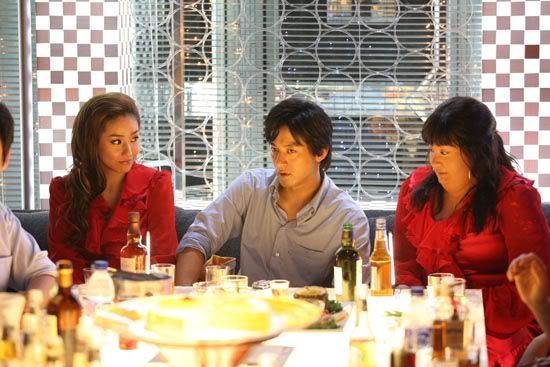
SERE: See, if Hanna (Kim Ah Joong) had done surgery, extreme and unrealistic may it have been, for herself or because she felt discriminated against and humiliated or cos she wanted to sing, then I may have frowned, but I would have understood. But no, mostly she did it for someone else, to appeal to her crush. Remember when she said — in the same sequence you mention — that when she was being sliced open on the operating table, she could go on because she only thought of him? So no, she didn’t do it to feel better and comfortable with her body or to “fight” for her rights against an unfair society. And besides, even if she went through a great deal of pain, physical and not, and even if she did realize that being true to yourself is important, the message that comes through, in the end, is, “Look, boys and girls, you may suffer, but in end, it might be worthy. You’ll be beautiful, rich and successful in love, too.” How’s that for a fair message? It is hopeful? Maybe I’m too cynical, but I’ve seen too many 16-year-olds *begging* their parents to get breast implants and I’ve heard *horror* stories about teenagers from my plastic surgeon…and honestly, I’m not making this up. It’s a reality… that’s why the premise bothers me so much.
SAMSOOKI: I appreciate your thoughtfulness, but I think you point at 200 Pound Beauty because the movie deals literally with the issue of cosmetic surgery as a viable means to achieve one’s goals, but you might be pointing your finger at too narrow a target.
JAVABEANS: I’m popping up there to say that I don’t think that’s exactly the problem that people have with the film. Or I’ll speak merely for myself and say that that my problem with the film is not merely that the movie deals with cosmetic surgery as a lifestyle choice. I have no problem with plastic surgery. It’s the flippancy with which the movie delivers its message that “You’re valuable even if you’re ugly or pretty! Hanna’s pretty on the inside, and that’s what counts!… so at the end of the day, you might as well be pretty!”
SERE: Exactly!
Do you remember what’s the last scene? It’s about the surgeon who’s bragging about his skills and a young woman who wants to get a complete makeover. It’s like even TPTB are saying, “It’s going to happen again anyway so why are you even trying to resist? A little surgery, what can it do? Do it, do it, and you’ll be just like Hanna and get everything.” It’s like the whole point of the movie was moot, IF it was really trying to say: stay true to yourself and accept yourself as you are. It failed in that, imho. Had it ended with, say, Hanna tearfully realizing what’s important in her life, I would’ve still frowned, but it would’ve been a lot better. So in conclusion, I have problems with the premise of 200 Pound Beauty *and* also the ending.
You know, there’s a movie — Shallow Hal — with Jack Black and Gwyneth Paltrow that tackles the same issues, minus the surgery: beauty, love, how society discriminates, etc., and compared to 200 Pound Beauty, it is 100% better imho (still not my kind of movie, but that’s beside the point). Even if both movies wanted to give the same message, one managed to do it nicely even though it was slapstick for the most part and the other, the way I see it, did not and it may be potentially dangerous, that’s all I’m saying.
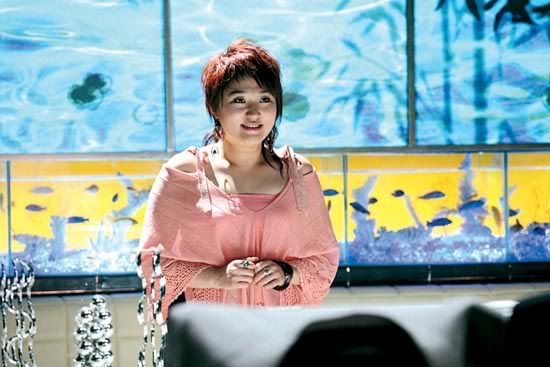
JAVABEANS: I have to say that the last scene was the part that ruined the movie for me. I was enjoying it, although I did feel a little uneasy at the message, until that last scene just undid all the goodwill the rest of the movie had built up. What’s worse is that the woman who asks for surgery at the end is Hanna’s friend — the backup singer friend who had been the “prettier” of the two, back when Hanna was “ugly,” and who was then relegated to being the uglier friend after Hanna’s transformation. She’d always seemed to be the example of a woman who was secure in herself and who would look down on cosmetic surgery as a way of conforming to societal pressure to be beautiful. In having her opt for surgery — full-body, head to toe, just like Hanna! — it sends the message (perhaps unintentional, but distasteful all the same) that after seeing the way Hanna’s life has transformed, she wants the same, and this surgery will achieve that for her. This brings out my STABBY HANDS.
SAMSOOKI: Let me see if I can’t distill the argument against the movie. 200 Pound Beauty promotes the message that “girls, if you want to be successful and happy, you must be 99 lbs and look like a supermodel — so do WHATEVER it takes to look like that.” And this message is wrong and extremely dangerous. Here’s my response to that.
Take a look at any Korean actress under 30 y/o that you find on dramabeans, and here’s what I found when I looked at six who had been recently featured – Kim So Eun (97 lbs, 5′4), Jung Ryeo Won (99 lbs, 5′6), Lee Yo Won (106 lbs, 5′7) Gu Hye Sun (92 lbs, 5′4), Im Yoon Ah (97 lbs, 5′5), and Kim Ha Neul (99 lbs, 5′6). What’s the hidden message that the k-dramas are sending out, when every actress hovers around 100 lbs and is between 5′4 and 5’6? But its all fantasy, isn’t it? These movies and dramas deal with impossibly beautiful people, with impossibly easy jobs, with impossibly unrealistic speed-check-ins at Incheon Airport, and have impossibly loyal friends who have no life other than to hang out with you. I think the audience understands they are dealing with fantasy. If they do not, then they have bigger issues to deal with.
And if you want to argue that 200 Pound Beauty sends the wrong message, it is not the movie that created the message — its the culture.. Every commercial, every music video, every movie, every TV show, the women are all the same — rail thin, elf round eyes, and paler than a surprised ghost that never goes outdoors. 200 Pound Beauty brings this issue up to the surface, but the message has always been there. Can we point our fingers at 200 Pound Beauty, and not also hit every single k-drama and every movie?
JAVABEANS: I don’t think a movie has to be entirely fantasy or entirely literal. That’s a little too black and white for me. There are motifs and themes in fantasy (Lord of the Rings? Harry Potter?) that apply in the real world, just as there are fantasy elements in much more “realistic” films and dramas.
The fact is, messages are important and people take away certain ideas from uber-popular movies like 200 Pound Beauty whether intentionally or not. It’s a bit like the Britney Spears argument, “But I never asked to be a role model!” Whether or not a poptart with tweenage fans wants to be a role model, whether or not a movie intends to convey a pernicious message, it has to deal with the responsibility of being a bearer of that message. And it’s up to the movie to treat it with thoughtfulness, or not.
I agree that 200 Pound Beauty is certainly not the only offender — as you point out, there are dramas and pop culture at large to point fingers at, too — but the debate isn’t whether those are also culpable, just whether this one is. And to me, it is.
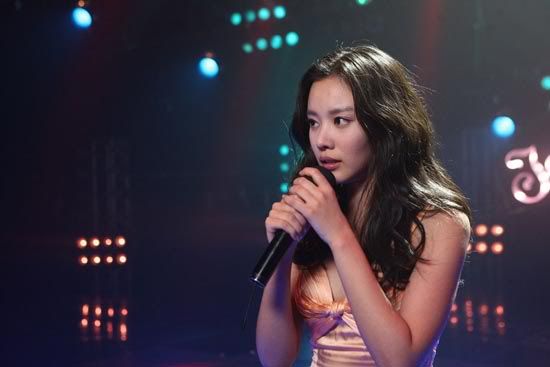
SERE: I think you’re missing the point, Samsooki. True, most of the actresses out there — Korean and non-Korean — are skinny, more often than not even skeletal, but it’s not like the point of the drama/movie, the key storyline, is to say, “Look, they’re skinny and beautiful and therefore they’re good and successful and even got a boyfriend or a husband.” Is there a storyline like that? The only one I could think of when the weight of the main character is mentioned *at all* was My Name is Kim Sam Soon, but it was done in such a way that it wasn’t recklessly dealt with: it was very realistically and sensibly done.
Anyway, yes, many actresses are skinny, and they’re most likely chosen because of their looks (after all that’s how the system works, and we all know that), but whatever the reason, the message of the movie itself isn’t strictly linked to the weight of the actress. What I mean is, you’re one step ahead of me. There are 2 ultimate messages to movies/dramas, imho: (1) the one of the movie/drama itself which (a) revolves around the plot and the characters, (b) is the most direct and (c) is supposed to grab the attention of the viewer, not only entertain him/her; and (2) the one which you speak of, which is about the casting and society in general. But in my opinion, this message is quite obscure and most likely it wasn’t even meant to go through. Hm, I don’t know if I expressed myself clearly here.
Anyway, 200 Pound Beauty takes what are extremely serious issues — plastic surgery, weight problems, discriminations, perception of Self — and treats them *extremely* lightly. And *that* makes me uneasy. If you want to argue that it’s just fantasy, that a simple movie cannot be blamed for the cultural mishaps of an entire society, well, of course I can’t blame it for that… nobody can. But, even though I firmly believe that movies should be entertaining and fun, there’s also the tiny little problem that treating sensitive topics in such ways is always quite dangerous.
SAMSOOKI: Yes, the movie did treat plastic surgery lightly. But, it is merely a movie device used to move the plot along. Some stories use magic wands, others use a time machine, or a genie in a bottle, whatever. Now, again, I agree that the movie’s use of this device (“magic” plastic surgery) was problematic, but if so, then I really think that we are just treading on the edge of a much larger issue, which is the way that Korean culture overwhelming supports a singular notion of physical beauty.
SERE: But it’s not the plot device itself I have a problem with. It’s how and why that plot device is used. It’s used in an otherwise realistic — or as much as a rom com can be — “chick flick” aimed at, I assume, young women. And that might be confusing. BTW, that notion of physical beauty? So not only Korean!
SAMSOOKI: You have issues with how the plot device is used? So if the main character hadn’t used magic plastic surgery, but had gone through 8 months of severe diet and physical training (still not realistic, but again, we are dealing with fantasy), then would your problems with the movie disappear because plastic surgery was not used? To me, the issue would STILL be there, because the larger issue is how Korea (and other countries) champion the ideal of physical beauty.
SERE: My problems with the movie wouldn’t disappear entirely, but most of them? Yeah. Look, I could have even accepted the plastic surgery plot device, but IF and only if the character had gone through such a change for herself and herself alone (for her health, whether mental or physical, etc.) rather than to be pretty in order to be noticed by the guy she loved. You could argue that if that *ultimately* finding love is for her own benefit and yeah, I suppose, but do you have to completely forget who you are in the process? All I’m saying is that all the topics mentioned in this movie are rather complex, and using or abusing them in such a movie — and do we agree it was meant to be a “light and fun” rom com? Cos if we don’t, then this whole discussion is sort of pointless — can trigger all sorts of tricky problems and reactions. My main issue with 200 Pounds is that The Powers That Be treated serious problems in a light way, totally disregarding what the message they were sending was. Serious issues + light rom com = not a great combo, imho.
I do agree that there’s a much larger issue at hand (the ideal of physical beauty), but you can’t change society in a day, right? You can, however, start making small steps in that direction with, say, movies. But this is an entirely different problem, I think.
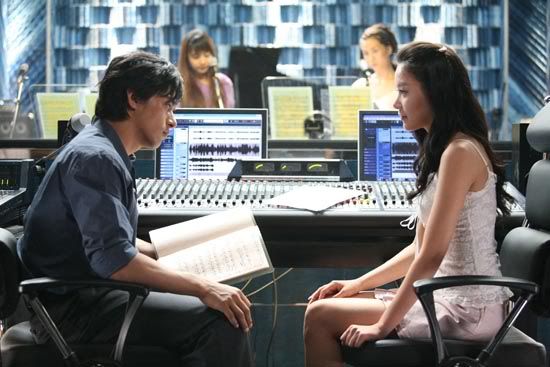
SAMSOOKI: By contrast, we can look at an American movie which also deals with issues of obesity, fat suits, beauty inside vs beauty outside, etc. — Shallow Hal. The message of Shallow Hal seems to be a good one: “Hey, everyone, beauty is more than skin deep.” If you haven’t seen the movie, the main character has a spell put on him where he sees women only through their “inner” beauty. So, if he sees a supermodel who is a bad person, then he’ll see that person as ugly, whereas this obese woman who has a heart of gold (played by fat-suited Paltrow), he sees her as the beautiful Gwenyth Paltrow without the fat suit.
I know that people will argue that it is only when you ARE good that you look beautiful, but the reality is that nobody can tell if you are good or bad from just your appearance. So the perverse result is that Shallow Hal’s the subliminal message is to associate beauty with “good” and ugly means “bad.” And that message is actually worse than the one in 200 Pound Beauty.
SERE: Premise: I’m not saying Shallow Hal is a work of art (on the contrary, I actually think it has lots and lots of flaws), but I also believe it dealt with the same issues 200 Pound Beauty tackled, but in a less horrifying way. What you said it is true: the clichés and stereotypes you mentioned are there, no doubt, but if you think about it, Hal’s prejudices, however shameful and wrong they are, are exactly the same of Society. So in the end, the movie actually mirrors what is, canonically, considered beautiful and what is not (FYI, I’m in no way saying that I agree with THAT message). I mean, Hal always thought beautiful people were only hot supermodels, he never even **considered** inner beauty, but then he changes his mind (I’ll never forget the scene with the girl whose face was burnt). And yeah, the clichés are awful, but the ultimate message of the movie is: everyone is beautiful no matter how they look. Period.
The ultimate message of 200 Pound Beauty is, on the other hand, slightly different: it’s more like, yeah, yeah, everyone is beautiful, but it doesn’t really matter because if you aren’t, you can fix that and yes, you might suffer, but you’ll get your happy ending in the end. Honestly, that last scene in 200 Pounds left me really, really bitter and quite speechless.
SAMSOOKI: Bottom line: I really enjoyed watching 200 Pound Beauty because it brought together everything I enjoy in a movie — compelling character brought out by great acting, comedy, romance, songs, etc. The story line may have problems from a “message” standpoint, if you take what is otherwise a minor plot device (really, no different than a magic wand, but nobody criticizes the use of magic to make limousines out of pumpkins) as the message, but if we point at this movie for pushing beauty as an end-all-be-all goal for women, then we can blame all of Korean pop culture for the same thing. And I don’t see anyone doing that.
SERE: I liked the songs and her singing, but I cannot help but thinking that maybe TPTB could have achieved the same success, still have filmed a nice rom com, but without the potentially nasty message thrown into the mix. I would’ve enjoyed it a lot more!
JAVABEANS: I have to thank you both for taking such time and effort into this discussion! This whole plastic surgery issue is so relevant in pop culture in particular and society at large, and you both have been wonderfully eloquent about expressing your thoughts on both sides. Already I’m eager to see what kind of comments and discussion this sparks below.
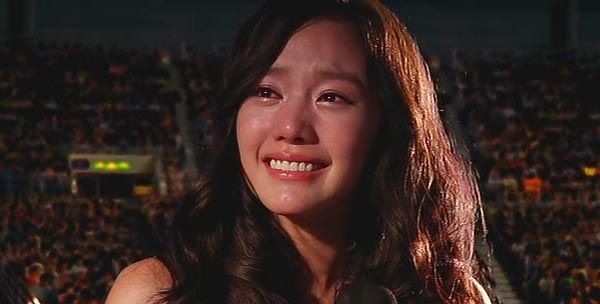
RELATED POSTS
Tags: 200 Pound Beauty, Kim Ah-joong
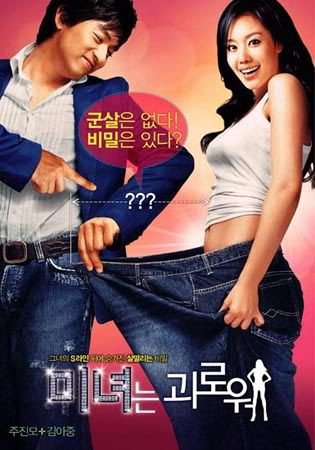
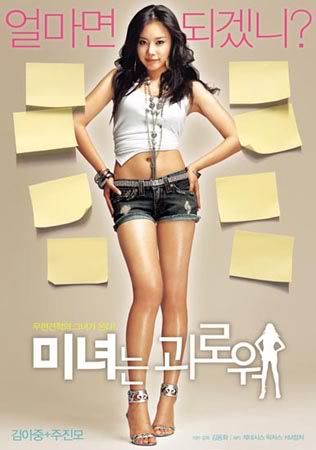
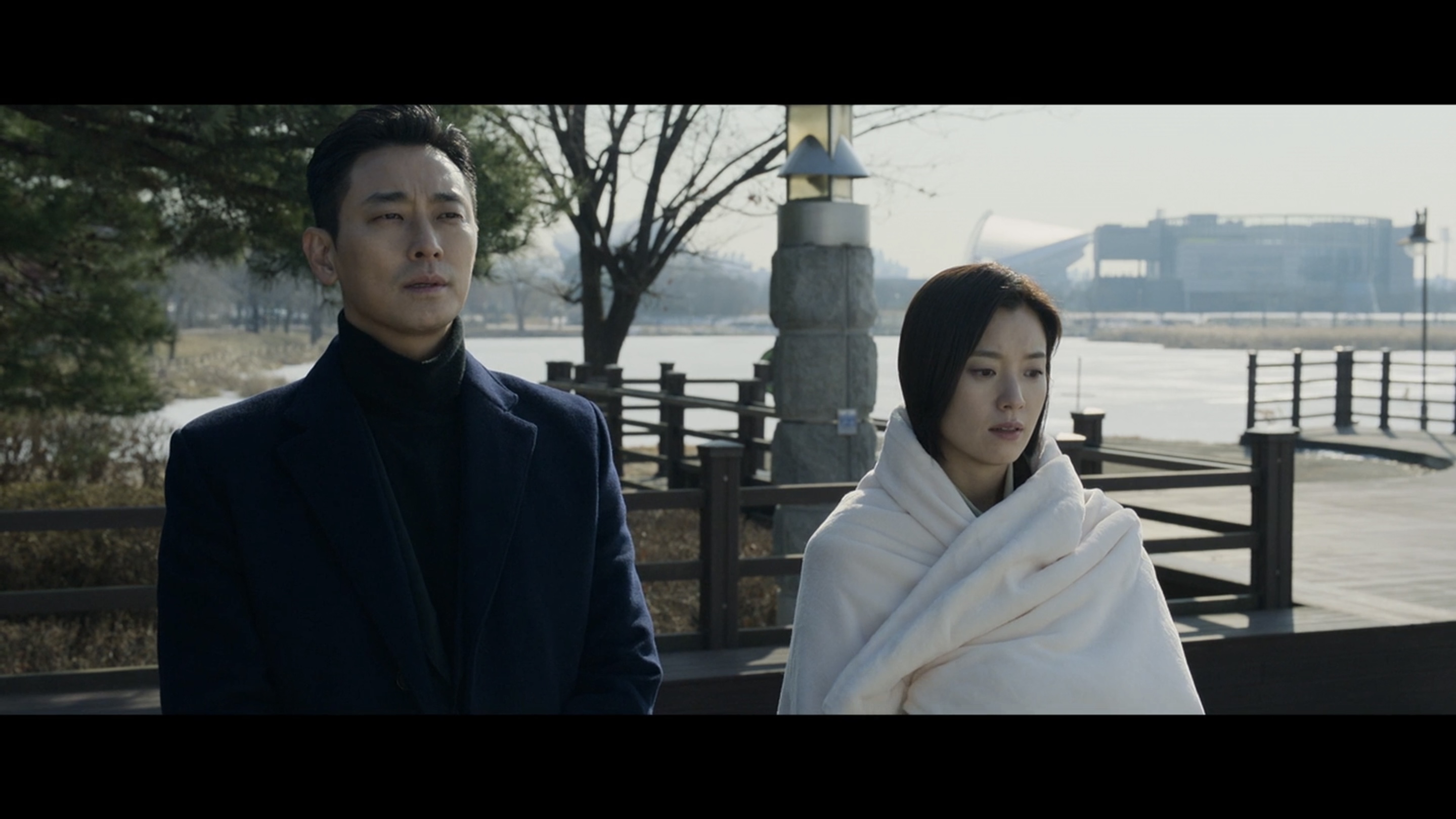
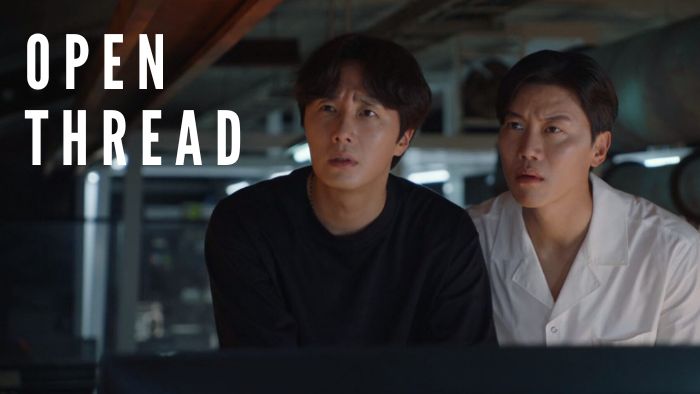
![[Cast Away] A psychometric marries his enemy to foil her plans](https://d263ao8qih4miy.cloudfront.net/wp-content/uploads/2023/09/castaway_header1.png)
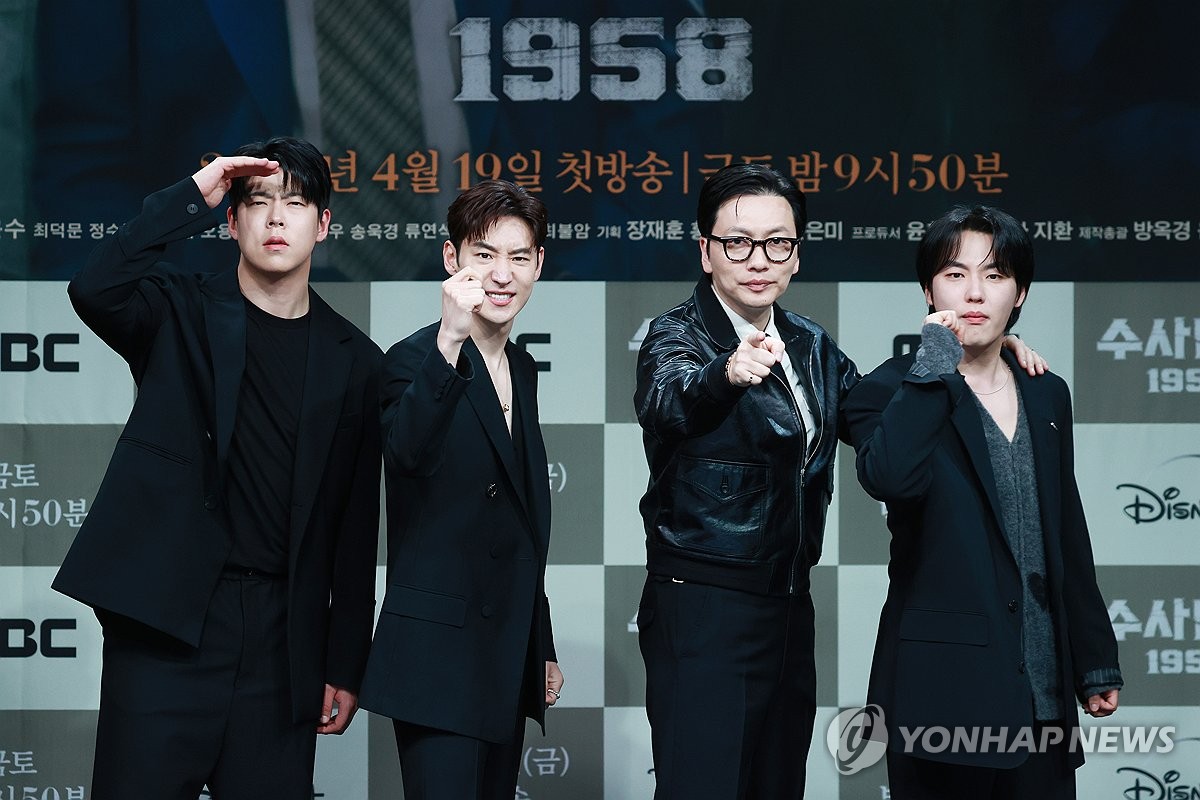

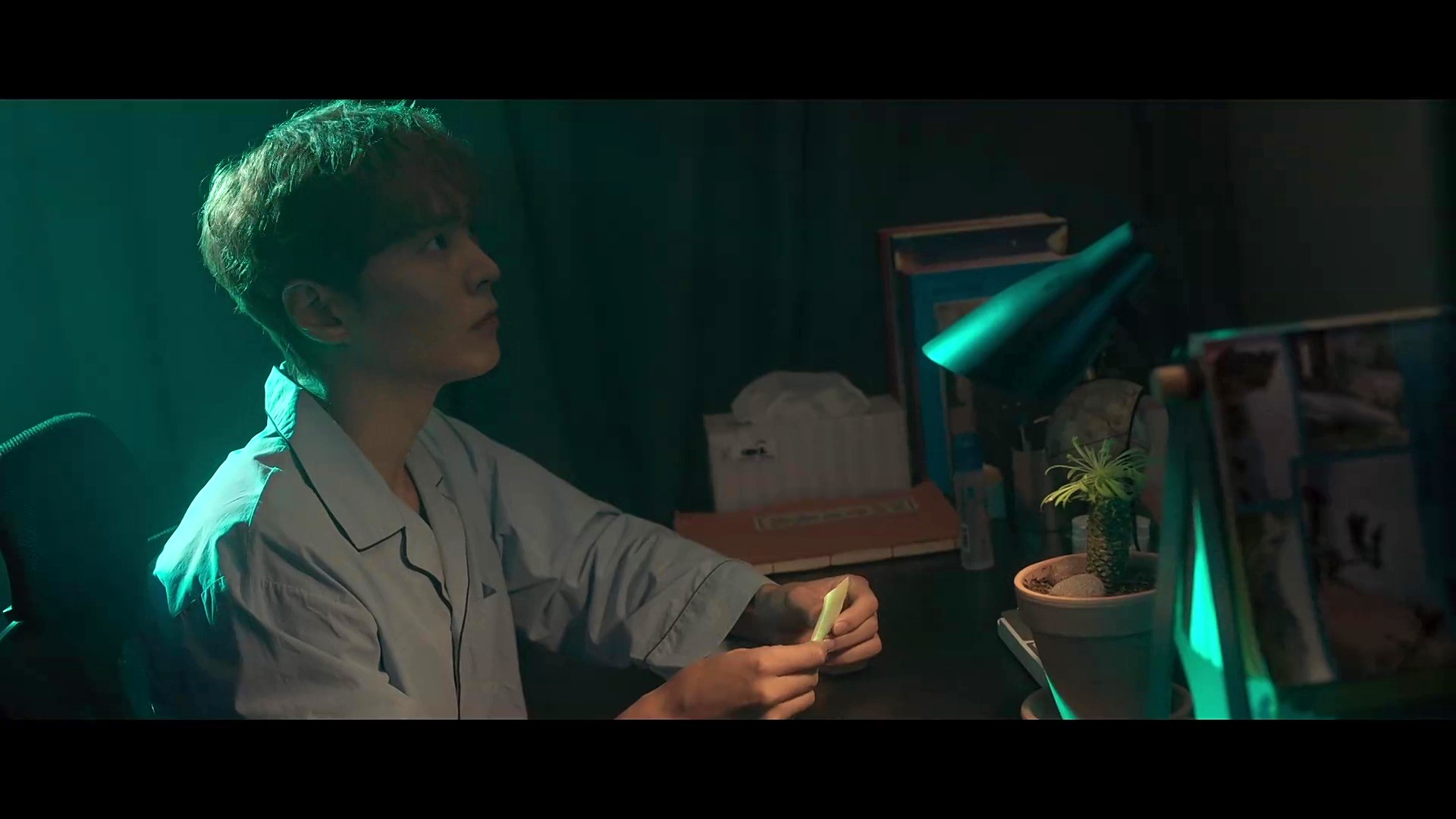
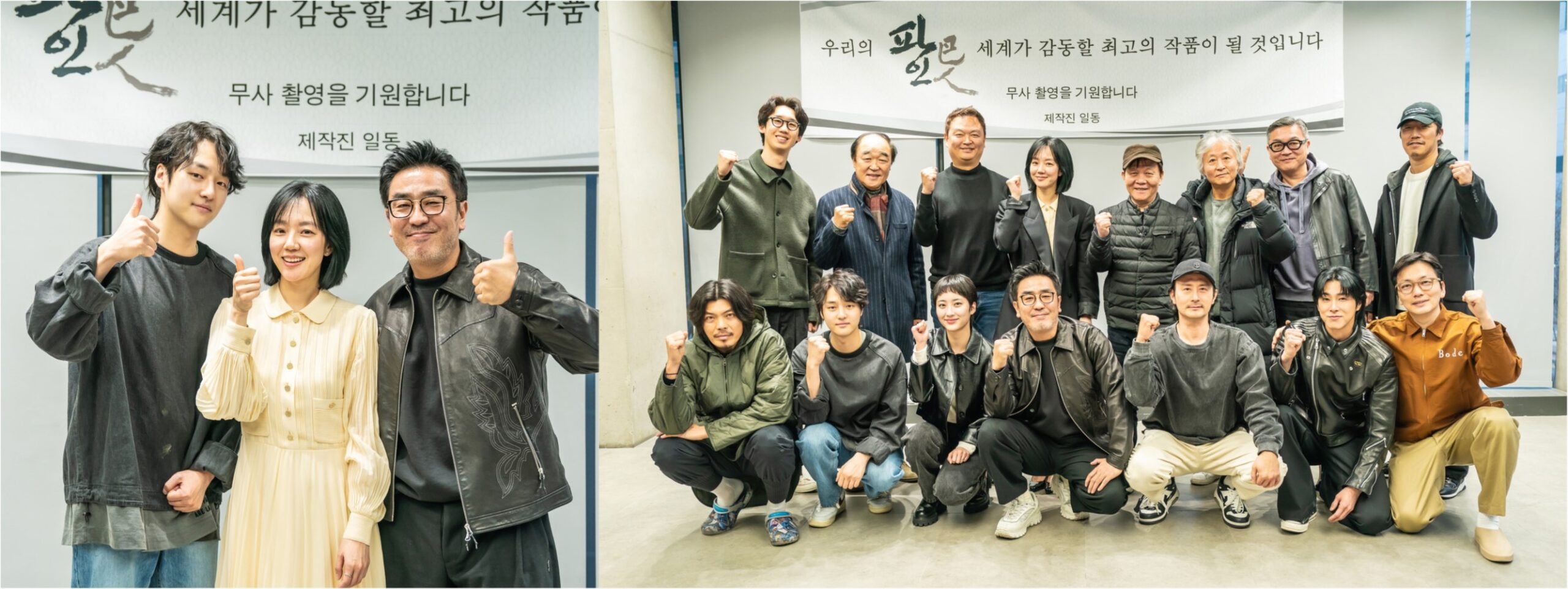
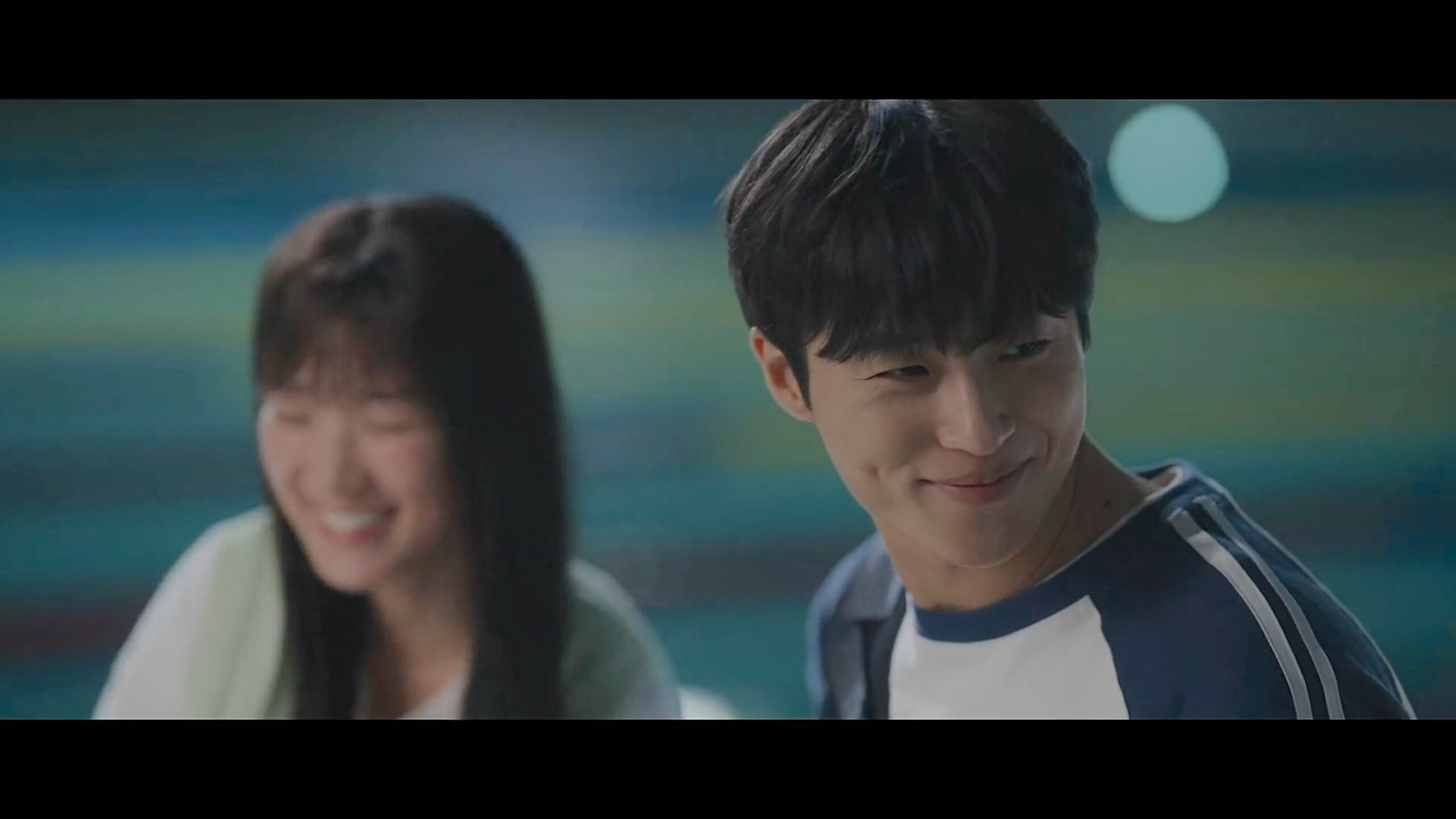
![[Beanie Recs] Dramas about fangirling](https://d263ao8qih4miy.cloudfront.net/wp-content/uploads/2022/05/BeanieRecs.jpg)
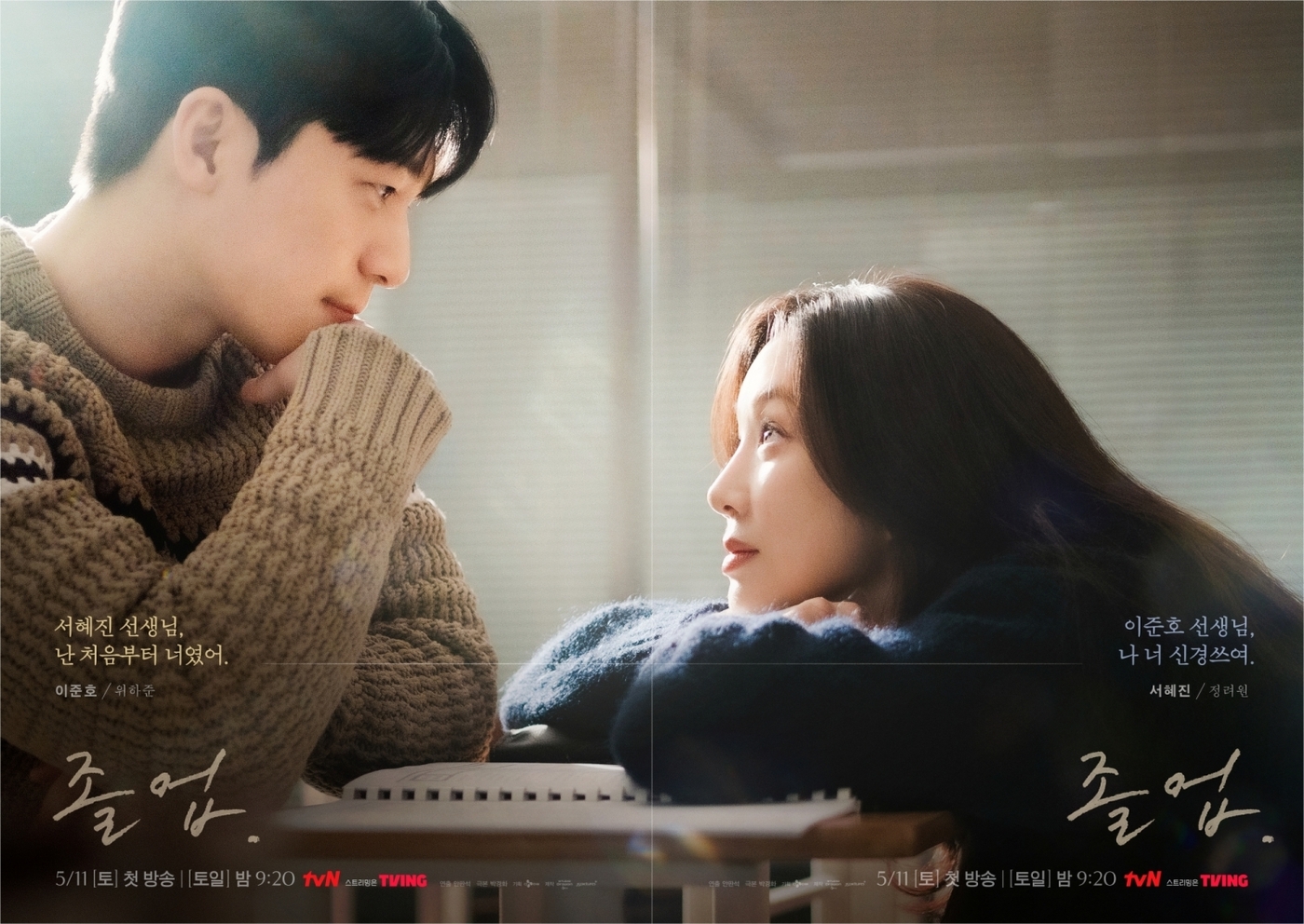
Required fields are marked *
Your email address will not be published. Required fields are marked *
101 anon
April 10, 2009 at 5:41 PM
In response to #96 Lily:
The difference between make-up and plastic surgery is that make-up enhances your natural beauty while plastic surgery changes it. Make-up accentuates your features and makes the best of what you already have. Plastic surgery changes what you already have because you are not satisfied with it. The one is loving yourself for the good parts of yourself, while the other is changing things you find inadequate so that you can love yourself. There is a vast difference between the two in terms of self-perception. Surgery is serious business because it carries risks and should not be treated on equal grounds with make-up.
This is not an issue about "fake" and "real", imho. It is an issue about WHY women should feel the need to insert plastic into their bodies in order to love themselves and their looks. When 90% of women do not look like the models on magazine covers and even those models are airbrushed to look "prettier", there is a serious problem in the perception of beauty in our society. That problem and view should be the one that is changed, not the women themselves.
Now, in regards to this movie, you argued that she's making herself happier by appealing herself to the man she loves through means of plastic surgery. I agree. The problem isn't with making herself happier or her having a right to do so through means of plastic surgery. The problem is the fact that she pursues love by deciding she hates herself and tries to change her physical appearance completely in order to do so. It's the fact that the guy only begins to see her inner beauty AFTER she has outer beauty, as if outer beauty were a pre-requisite to inner beauty if you want other people to recognize it. The fact that she loves him enough to do it all is sweet. The fact that she hates herself and tries to mold herself to what she perceives he would like? Not so much. Again, this is different from going to a party where the guy you like will be and putting on make-up because in this case you are trying to make yourself look your best. It's not for him. Make-up is about making yourself look good and feel good, not because you're trying to mold yourself into what you think someone would like.
In conclusion, I primp myself and brush my hair because I want to look good for myself. It makes me happy and cheerful and makes me feel beautiful. Plastic surgery on the other hand is about hating parts of yourself and replacing it. You are not loving yourself when you do that. Even after plastic surgery, that insecurity will always be there. About 80% of people who get plastic surgery once will get it again. It's not simply hating your nose and then changing it and you are happy forever. It is about not being satisfied with how you look so today it's your nose, tomorrow it's your eyes etc. THIS becomes a destructive cycle.
Required fields are marked *
102 withsugarplease
April 10, 2009 at 9:07 PM
i personally never finished the movie because
i didn't care for the message it was sending. that aside,
i am really glad you posted this discussion javabeans.
i was always curious as to how you really felt about it.
Required fields are marked *
103 n00b1kenob
April 10, 2009 at 9:08 PM
I agree w/ Carolyn but want to clarify b/c I think soshee may have read her response slightly differently than I did... it's not that curvy girls didn't like the movie, it's that people who may have or had some of the same self-esteem issues and who aren't comfortable w/ themselves didn't like the movie. People see things as a reflection of themselves, through the filter of their own experiences and emotions, which is why I completely agree w/ Sere's response to Carolyn and would say that yes, as a person who has not had self-esteem issues w/ my physical appearance, I definitely viewed the movie w/ less gravity. And because I have not had plastic surgery, I probably underestimate the experience, because as it stands today, when I'm Demi Moore's age, I would love to have the name of her plastic surgeon. I took issue w/ the reason why Hanna did it, not how. I think Sere took issue with both, which is where our opinions differ.
Also, maybe I'm wrong but a lot of the discussion seems to revolve around the fact that the movie is bad b/c it gives the message that plastic surgery let her get what she wanted, love. I didn't see that happen... she wasn't w/ him in the end, they worked together & whatnot, but they weren't together, so I didn't see it as a happy ending for her - sure she had her career and she may have felt better about herself, and gained the confidence to stand up for herself (chasing off the anti-fans who defaced her van - which I couldn't have seen old Hanna or even Jenny doing), but she didn't get the guy, so to me plastic surgery was not presented as the end-all be-all cure. What I got from the movie was that Hanna was a very insecure girl who placed too much importance on gaining her crush's love, who make a very dramatic decision to undergo plastic surgery (in a culture where it's accepted to do so) in order to change her looks to appeal to him, and who came out realizing that she didn't like herself very much after changing her physical appearance because of how she had changed on the inside. I didn't see the movie advocating plastic surgery as a way to achieve your dreams, I saw it used as a plot device to caution people on WHY and WHAT dreams they want to achieve, because they might find out that what they lost is just as important as what they gained. Luckily Hanna got back what she'd lost, namely being a good person, a good friend, a good daughter, but she didn't get everything she wanted.
Then again, I could just be thinking all this because I didn't view it as a completely happy ending, and because I fundamentally don't disagree with what she did, but why. Whether it be dieting, exercising, plastic surgery, dying your hair or using makeup, I don't have a problem with using any of those tools to become more satisfied with your appearance. I have a problem with using those tools to please someone else, not yourself, and with those tools being used to excess (anorexia/bulimia, plastic surgery addiction, etc).
Required fields are marked *
104 jenjen
April 10, 2009 at 10:01 PM
I realize that some people are saying that it is 2009 now and the movie is in the past and what not. Does that mean it's not worth the discussion. It's obvious that the problem exist even without the movie. The movie is just a channel that has displayed these topics that must be dealt with.
Merely the fact that people are still discussing the issue in itself is a legit reason to bring it up. Also, I think if we just let the issue go, its simply displaying ignorance.
I think the movie brings up many problems with societal perceptions and norms. Some may find plastic surgery as an applauding act to please others while other see it as a self-esteem booster for the individual which is enough to justify the behavior.
Yes, the movie is there for entertainment and it was sure entertaining to me and I must admit I didn't look into the movie as much as everyone has but now that I do realize the message (whatever it was), it is coward to address it.
I enjoyed everyone's discussion and I believe it's worth the time.
Required fields are marked *
105 jenjen
April 10, 2009 at 10:12 PM
^ NOT to address it. *
Required fields are marked *
106 longs
April 10, 2009 at 10:18 PM
the movie hit a little too close to home for some huh? i mean, do you know any fat and/or ugly people who liked the movie and found it funny and entertaining and wasn't bothered at all by all the possible negative messages being sent? maybe, but i bet not a lot. it's a sensitive topic specially if you can relate (meaning lacking self confidence about your body etc.). for those that can't it's easier to enjoy the movie for what it is. entertainment.
i agree with samsooki, but i do think sere and everyone else make a valid point about the underlying negative messages. it's just that it depends on the person what kind of message you take away from the movie.
and lastly, although a movie with a message "it's ok if you're ugly, you're stil pretty inside" would have a great message, i don't think i'm alone when i say i'd rather watch something that is also pleasing to the eyes. and that's just the reality of society.
Required fields are marked *
107 :D
April 10, 2009 at 11:44 PM
you guys have very intelligent conversations
Required fields are marked *
108 omo
April 11, 2009 at 12:19 AM
OK. I promise, this is absolutely going to be my last post on this thread.
Many suggests to lighten up and treat the movie as a movie and I did not give up on this movie till the end. I knew this was a rom com and wanted to watch it so badly and expected to laugh my head off and be entertained. At the end of the movie, I asked myself, how come I'm not laughing?
Then my analysis began. The whole production team couldn't make up its mind on handling all those issues (beauty, obesity, self esteem, etc) and hence ended up introducing lots of inconsistencies.
1. While overweight, Hanna still looked pretty enough to me. I was very sure if she just loose that weight, she will look pretty. Poor make up artistry aside, that gave the ending away for me and enough said in my first post.
2. Love interest...introduce self esteem. Surgery or no surgery? Introduce plastic surgeon.
3. Weight loss successful. Plastic surgery successful. Denies family and friends. Deceives love interest. Huh? No shrink involved? lol.
4. Decides to reveal her identity to be true to herself regardless of inner or outer beauty...so don't ask love interest which Hana he loves. Weird moral. Weirder ending.
YA! Don't read too much. It's only a movie. Did I laugh and cry at certain moments? Yes. Wholeheartedly? No. Oh wait...has it, would it, can it happen to someone in any part of this world? Well, it's not that ridiculous that it CAN'T happen in reality. Aigoo!! That's scary. So where is the rom com movie that I so badly wanted to spend almost 2 hrs to watch? Aiiisssshh!! What a rip off!
Brain is switching off for this thread. Going off to open thread!! Yippee!
Required fields are marked *
109 Hanjanman
April 11, 2009 at 4:57 AM
I did try my hardest best to ignore this thread but I just couldn't anymore. A lot of valid points have been made on both sides and I'm trying to come up with something that would not sound redundant with all that's already been put across by everyone. My attitude towards seeing the film was the same as with any other Korean film or drama that I've seen, to be entertained and to get a view of Korean culture(and attitudes). This film has given me both that. I know this film tackled a subject that is also a current social trend in almost any part in the world, hence the heated discussion on this thread now. The notion that inner beauty can transcend everything else is something I wish to believe to be true and not just a notion. But inner beauty's not what's immediately evident. Its because of this,and for all his arguments that I have to agree with Samsooki. If Korean films or dramas are to be believed then all Korean men are born without eyefolds while all Korean women do. What a weird race! I guess what I'm trying to say here is, I may not agree with plastic surgery but its a reality for us now with whatever norms we set for ourselves, wittingly or unwittingly, at this moment and in the future.
Required fields are marked *
110 peppero
April 11, 2009 at 7:02 AM
i agree with sere. at first i didn't understand what the main problem was because i missed the ending credits. when i watched it till the end, i was shocked and utterly pissed. if hey took that part out it might have been a better movie. *sigh, i can't believe i missed that part.
also...in many places, plastic surgery is looked down upon by the public even though everyone does it. does this movie mean to say that it's gradually getting accepted?
Required fields are marked *
111 Seri
April 11, 2009 at 9:37 AM
Hey Kaori, I know ^^ hence my statement:
"When a majority is conquered, it’s harder to break the hurt"
Those people died because the majority was conquered, unfortnuately.
Required fields are marked *
112 jamesia
April 11, 2009 at 11:04 AM
You are so great lose all your pounds I am also 200 pounds and 10 year old!!
Required fields are marked *
113 Catburt28
April 11, 2009 at 1:05 PM
For those people disappointed with the ending;
Link----> http://joongangdaily.joins.com/article/view.asp?aid=2871589
**************************snip*******************
Q-Doesn’t the film’s ending, where even Hannah (Kim A-jung)’s friend chooses to go through plastic surgery, reinforce the idea that you have be beautiful to be happy?
A-I am not too fond of didactic movies that tell my views on plastic surgery or anything else, and make that a major part of the plot. The ending is meant to provoke viewers to reflect on themselves, and realize no one is completely free from his/her appearance while knowing that looks aren’t everything. I presume the viewers got the point.
*****************************************end snip******************
~~~on another tack~~~~
If you bought the SE or LE versions of the DVD, there's outtakes which show a totally different movie vision.
Remember the amulet she sewed into his birthday sweater?
There's a longer dating scene from the one we see.
He picks her up and he's wearing it.
I first thought that he should have left it in, that it showed SM had feelings for Hanna from her fat days, and I think that's what KYH wanted to show as well.
I now believe that KYH removed this scene because many in his target audience ---Koreans!--- do have a belief in the power of these things and he wanted it to be obvious that Sang-min had liked Hanna for herself and not because this amulet influenced him.
The pre-concert scene in the bathroom with Jung-min and Hanna;
When Hanna walks into the bathroom, you can hear a spraying sound (this is stil part of the released movie)
Deleted scene--We see a spray paint can next to Jung-min.
At this point it becomes obvious that it's Jung-min, not Ami, who has been spray painting "you're a phony" and sent the threatening email to the producers.
"Et tu, Brutus?"
Unfortunately, for time constraints some of these scenes were deleted.
So keep in mind that JJM has been receiving direction about his character's motivation from KYH before the final edits.
Without the deleted scenes, the intial bathroom scene between Ami and Sang-min makes him look like such an @sshole and you never really see Sang-min make any changes to justify her liking him.
BUT--after watching the outtakes (even though they weren't subbed) I've come to a different understanding of Sang-min's behavior in the bathroom and the scene before.
Whene Ami walks into the room in the same dress and Hanna is so humiliated she gets up to leave, he is so in tune with her, he immediately turns back and asks where she's going.
He is absolutely furious at Ami for what she did--and she tries to do the "I'm beautiful and can flirt my way out of this one" manueveur.
He takes her to the bathroom and rips her a new one.
Remember that 70-90% of our commincation is non-verbal, so watch his face and remember that he really likes Hanna.
He says "I want to live a good life and you're a problem."
Her, not Hanna.
He reminds her that she has no singing talent, and has only her looks and dancing.
He is telling her that SHE had better straighten up or he will replace HER, not Hanna.
When he asks "Do you think I like her?" notice that he doesn't deny that he does...
He also reminds Ami that if Hanna walks, Ami is done.
Is he a bit brutal about Hanna's looks?
Absolutely.
He's a flawed individual and is probably struggling with his feelings and the repercussions, liek Gong Yoo in "Coffee Prince"
The scene can be interpreted in two ways and it's only later information that makes you see it in a new way.
Kind of like "The Sixth Sense".
It's only at the end, when we realize BW is dead, that our whole perception of the little boy's interaction with him shifts 180 degrees.
I'd like to see a Director's cut released--to see his original vision.
~~~~~~~~~
W also have to remind ourselves that most of us rely on the subtitles for our understanding what's happenig and fail to remember the subcontext (cultural mores) which every director uses to reinforce his message.
Example;
The end scene where it becomes Sang-min's voice narrating;
He talks about how he thinks she doesn't like him anymore, according to the subtitles.
In reality, what he's saying (by Korean mores) is that she TREATS him as if she doesn't like him anymore.
Yet they're sharing a water bottle (a humorous reversal of an earlier scene).
This scene shows that they've actually become equals, whereas before she got the surgery, he would have been the one to always have the upper hand in the relationship.
He would have always had the power to walk away and she would be left with the pity and the "well, she should have treated him better, she's lucky to have him" kind of mindset.
NOW--she can walk away at anytime and there are plenty of men out there who think she's beautiful and would love to be in a relationship with her.
So was the surgery (magic wand) worth it?
That's up to you, the viewer.
-----------my own observations--------
You know, there's another disturbing thought process being outed in this discussion.
That thought process is "I'm fat/have had plastic surgery and the director doesn't know how his msg is upsetting for me and irresponsible. He's just looking to make money and doesn't care about the message he's sending."
Guess what--you're wrong!
As I said in another thread, I've actually met the director, Kim Yong Hwa and heard him speak about making this movie.
He revealed some of what happened in his life that prompted him to write this movie;
( As his comments were translated, hope I got this right!)
He had a girlfriend (present status unknown--we didn't ask) who was obsessed about what she PERCEIVED was a physical flaw (he didn't elaborate) and that it was affecting how people treated her.
He tried many times to reassure her that no one noticed and she was beautiful the way she was.
He thought he'd talked her out of getting plastic surgery, but one day he came home, and she'd had the procedure done.
After he was done writing the first screenplay--she read it and cried.
She said is was so realistic about everything she had felt.
He went back and changed some things, so it was less upsetting.
He changed his original intentions so that people wouldn't be as hurt.
Does that sound like someone who's just in it for money and doesn't care about your feelings?
~~~
There's something very interesting about the way Koreans treat this movie.
While it was a huge commercial success--none of the "intellectual" communities acknowledge its existence.
If you read lists of the top grossing Korean movies, strangely enough, 200 lb Beauty isn't on there...ever.
The Hallyu community still talks about "Windstruck" (which was an incredibly banal movie) and other romantic comedies as if they are the end-all-be-all.
The highest grossing Korean romantic comedy is NEVER mentioned in any interviews or given any kind of recognition.
It doesn't exist as far as the "theatre" community is concerned.
Now what does that tell you....?
This is what I think.
He struck a deep nerve with Koreans by publicly talking about their obsession with physical looks and that they will do painful, life-altering surgery in their quest for "perfect beauty."
This is what he does--he is a social crusader.
Watch Oh! Brothers for a greater understanding of how he works.
He made a movie with a specific audience in mind; Koreans living in Korean society.
He toned down the message because it was so painful for the people he was trying to help.
BUT--he made Koreans think about how they treat fat and ugly people.
He showed them how cruel they are...and they didn't like it.
While you're busy crucifying this guy because he treated plastic surgery in a light manner, the Koreans are busy ostracizing him for holding up to the light one of their society's flaws.
He made them lose face in the international community.
The guy can't seem to catch a break.....
Damned if you do and damned if you don't.
Required fields are marked *
Menci Ang
January 31, 2012 at 10:43 AM
@catburt28, thank you for saying your piece. I hope many have read and been enlightened by it.
Required fields are marked *
114 phjfever
April 11, 2009 at 2:39 PM
When I saw this movie i thought i enjoyed it for what it's about, it was funny but if there's a lesson learned (btw i didn't finish reading the discussion as it's too lengthy however i wish i could finish as it seems very interesting) it did project that when the lead actress was obese she wasn't getting too much attention because of how she looks. After her surgery albeit unbeknownst to her director, colleagues that she was the same person, she got much needed attention. It only goes to show that some people (not all) seems to care about how superficially we look as opposed to just being you & how your inner being is. Personally, if I meet a person male or female, what counts is not how they look like cause that's only superficial, that's only an opinion!
Required fields are marked *
115 HanBum
April 11, 2009 at 3:56 PM
The issue of discrimination against an individual based on physical appearances permeates human endeavors and is a large part of how anyone perceives the superficial (i.e., naked) world. However, I believe that the media isolates, exploits, trivializes and normalizes a tendency to look favorably upon that which is physically appealing to the extent where viewers develop an exclusive fascination with an unrealistic or narrow brand of beauty. Samsookie and Sere I think exposed two responses to the overwhelming importance the media places on idealized form, and I have my own opinion (however off their point it may be). Why can't entertainment forsake it's winged, gold-embellished carriage and treat every artist with the same consideration and respect? Casting should be diversified- more reflective of the true nature of the human population and representative of the fact that one need not be ethereal to be interesting. I realize that by instinct the public yearns for a hunk or hottie, but how can society be more embracing to all physical appearances if Sam Soon is the only character that comes to mind who has been given a chance to shine despite less than flawless appearance? I recognize that this continues a rant, but this discussion opened a tangent for that I could not ignore. On a more relevant note, this was a wonderful discussion and I thank Samsookie, Sere and Dramabeans for bringing it to our attention.
Required fields are marked *
116 HanBum
April 11, 2009 at 4:18 PM
Ugh, I freaking hate typos... please overlook those in my last two sentences.
BTW: Catburt28, your perspective has somewhat changed my opinion of this movie. Although I believe that had the director kept the tear-inducing realism present before editing and cuts this movie would have made a much more positive impact, I hold the man and his work with higher regard after taking into account your insight on his motives.
Required fields are marked *
117 Samsooki
April 11, 2009 at 4:45 PM
@113, Catburt28.
That's one great post you wrote. Thanks for the insights. I might have to watch this movie again to get a better understanding....
-Samsooki
Required fields are marked *
118
April 11, 2009 at 4:48 PM
@113 Catburt28:
Wow, I think you've just won this debate! Everything that you've mentioned is exactly what I think the director was aiming for! You've brought up very good points that couldn't have been expressed any better. Hopefully everyone will now be able to see this movie with more depth rather than at face value (if not for its entertainment value)...a movie that was made to make a point using a storyline that is undoubtedly a very sensitive topic. It obviously worked, though whether the viewers got the underlying message or not is still up for debate. Well done!
Required fields are marked *
119 elise
April 11, 2009 at 4:49 PM
i enjoyed reading all the intelligent inputs as well as the discussions of sarah, sere and samsooki.....
Required fields are marked *
120 Hannieoon
April 11, 2009 at 4:54 PM
@Catburt28
Wow! I really liked your comment. The director is pretty smart. Of course he could have just taken out the scene at the end but he didn't to question the audience's stance. Makes me like the movie even more. It's like the director is having the last laugh. Maybe the people who are so decidedly against the movie should read Catburt28's comment.
@ All
Everyone had so much to say and really enjoyed reading all the comments. A reason I come back is because everyone has intelligent things to say!
Required fields are marked *
121 Javabeans
April 11, 2009 at 5:24 PM
Hm, interesting thoughts on the director's comments. Unfortunately, they don't change my opinion -- that the movie is enjoyable, but flawed. I believe that a work should stand on what it DOES show, not what it intended to show. You can have the best of intentions, but intentions don't fix problems -- although it's always eye-opening to take into consideration what was intended at the outset.
"Does that sound like someone who’s just in it for money and doesn’t care about your feelings? ...While you’re busy crucifying this guy because he treated plastic surgery in a light manner..."
I don't think this was the argument at all. Thank you for your comments, but let's not conflate ALL comments and slap them with a "You just don't get it!" statement. There are a lot of layered, complex, and wide-ranging opinions here, and not everyone who has problems with the film should be lumped together as one ignorant whole.
Required fields are marked *
122 ar_arguably romantic
April 11, 2009 at 5:33 PM
loved reading the discussion and loved seeing how what is advertised to be a simple romantic comedy can turn into subject of deep analysis.
I don't think I can add to your amazing discussion, but here's what I thought about the movie: Though it was labeled a romantic comedy, I thought it was more of a dark comedy, dealing with this taboo issue in a humorous tone, without neglecting the seriousness and the thought-provoking aspect of the issue. It reveals society as hypocritical and easily swayed by outer beauty. It's a fact of life and yes you can get plastic surgery to "fix" it, but there are consequences like the problems that Hanna faced and that the pursuit of beauty can cause you to do some ugly things (like lying and hurting your own father). I liked the movie for throwing the issue of plastic surgery into the faces of the korean masses- into the faces of those give plastic surgery operations as graduation gifts. I liked how the movie says that yes, plastic surgery does exist in Korea; yes, we human beings are shallow; and yes, most of us will be more likely to support an up-and-coming celebrity if she's pretty; and yes, we're going to talk about this subject that forces us to confront the negative aspects of ourselves. The movie does not asks us to change our ways because plastic surgery is immoral, but, I think rather, it asks us to be aware of the issue and to reflect on our own attitudes. For example, it certainly had me thinking about the term "she's got the entire package"- given the same amount of talent, I would be more drawn to a prettier woman than a less attractive woman- because if she was pretty, she would have had the entire package- looks and talent.
Though the director had the good intentions, the mainstream nature of the movie meant that a lot of impressionable people will take the movie at face value and only view it was some sort of cinderella story that says "as long as you have inner beauty, outer beauty is great! go get it, tiger!". This is what a lot of people opposing the movie seems to be worried about. I wonder if people would have thought differently, if the same story was told with less popular actors and was produced as an indie film shown in a few theaters.
Required fields are marked *
123 engl
April 12, 2009 at 4:29 PM
hmm.. when I watched this movie I was looking for a romantic comedy and that was what I got..along with the a fear that some may look at this as reality. But I've found that to be an issue with alot of movies, but this one really hits home since it deals with the plastic surgery issue, that is so prevalent in Korea, so directly. I think I could have also done without the last scene and with an ending that reinforces the idea that plastic surgery does not solve your issues and that it shouldn't be something taken so lightly.
Required fields are marked *
124 KC
April 12, 2009 at 11:24 PM
This was a really interesting discussion to read. I reckon both sides won cause each side had their own really relevant opinion. But on a personal basis, I side with Samsooki because I LOVED 200 Pounds of Beauty. I can't even justify myself on it though because I watched and loved it for the most shallowest aspects of it; the prettiness of Kim Ah Joong, the hotness of Joo Jin Mo and the scene near the end when she admitted to everyone and bawled her eyes out. I think the reason why I only focused on such superficiality was because the movie was superficial and light-hearted in every way (except for the message) and it was just something I watched to pass time happily. You know the whole plastic surgery thing? I, like Samsooki, accepted it like a plot device used to push the movie. I didn't go into the whole message about cause it just didn't really register for me. I was like, "Oh Hana is gonna get plastic surgery now? OMG SHE'S SO PRETTY NOW!" That was my reaction. I guess thats why my opinion is extremely subjective because I know that quite a few people might actually watch it and take this plot device and absorb the wrong way but for me, I just passed over it. For the last part about Hana's friend, it wasn't the best but again, it comes to the fact that I think this film was treating this issue lightly and a lot of films do this and it just comes down to whether you're gonna treat it seriously or take it like a typical chick-flick with no seriousness in it at all.
Required fields are marked *
125 Squirt
April 15, 2009 at 2:01 PM
200 Pound Beauty was more realistic than Shallow Hal. It's like Shallow Hal is saying looks don't matter because you're beautiful on the inside! Obviously that is not how the real world works. Hanna made the decision she did because that was the only way for her to achieve her dreams. Better than crying, moping, and complaining about how unfair the world is.
Anyway, I enjoyed the movie for what it is...a movie. I didn't take away any message from it.
Required fields are marked *
126
April 15, 2009 at 5:12 PM
Wow, interesting post. Sort of glad that I didn't have time to read it until now. I'll keep my opinion on Korea's near-obsession with plastic surgery to myself and merely ask what I've been wondering ever since I saw this movie: How many Koreans, especially guys, agree with JJM's character when in the car, he says (paraphrasing here) "Plastic surgery is fine but not for my girlfriend." WTH is that supposed to mean? It stayed with me because I continue to wonder about some of the unintended consequences, societal and otherwise, of so many Koreans going under the knife, the least of which are thess: what does it say about a country's sense of national/cultural identity (or lack thereof), and what about the children born to those who had significant PS, especially to the extent of KAH?
Required fields are marked *
127
October 2, 2009 at 10:40 AM
Can't believe im reading this thread now! (October 2009) nevertheless some of the comments just amuse me. everyone who has posted on this thread show high level of intelligent, makes me wonder if we even need to worry about the wrong message the movie could signal since everyone seems to be able to see it from an entertainment perspective.
Required fields are marked *
128 elaineD
January 22, 2010 at 9:28 PM
samsooki is a guy right?
end of story.
people form their opinions based upon what they intuitively feel and want... and guys like hot girls. yes, i said it. They are wired to like images. i am not saying that it is all they care about, but i am saying that they are more prone to certain things.
Samsooki, you are a guy and no matter how old a guy is, he likes to look at got girls. imho, i think you based your entire defense upon that notion, subconsciously. We as humans often twist the heck out of our brains just to get an ounce of credibility to fit our own initial, if not sometimes flawed, beliefs.
In the end, we know that the movie was promoting plastic surgery, and wasn't that all the movie was about? how plastic surgery can change one's life and the whole movie is basically like the effect? YES. if a movie is centered around plastic surgery and the message is a bit on the dark side, that is something to be criticized.
I thought that the argument in this post was a bit redundant. Samsooki is seriously not interested in this plastic surgery overtone (imo) and javabeans and sere are obvious passionate debaters on this topic. YOU GUYS CARE ABOUT DIFFERENT THINGS.
(: all in all, an interesting post.
Required fields are marked *
Ron
April 8, 2013 at 10:35 AM
Wth. Did you just completely dismiss someone's well-thought out, sensible, logical, and completely creditable opinion because of their sex?
Required fields are marked *
129 zaza
January 27, 2010 at 5:34 PM
I completely agree with sere on this.
It's not that the movie was bad but that the message or lack there of just left a bad taste in my mouth.
And that last scene sort of crushed the movie for me.
The sudden realisation that..... "Oh so, even though people understand the difference between inner and outer beauty..... its only the outer appearance that people actually care for, so WHAT THE HECK GO FOR IT!??"
It also didn't help that this movie is praised so much and I watched becaus of all the recommendations and hype. I was maybe even more deflated in the end.
Really a great discussion..... was great reading it.
Thank you :)
Required fields are marked *
130 veron
April 20, 2010 at 1:20 AM
I know I join in way too late in this, but there is one thing that really bugged me all through your debate...
My question is: do you think Hanna actually became happy in the end? We never expicitly learn if they ended up together...which I seriously doubt, since earlier in the movie she could not even bear to be touched.
She does not feel that this new body belongs to her, didn't trust that it will feel "real"... In fact I think if they put some more emphasis on this matter - that she actually trapped herself in an even less comfortable body, the movie might have some depth to it..
(Okay, maybe not. :) )
Also, they definitely ruined it with the unforgivable final scene, I agree.
Sooo...if anyone is still reading this, it would be great to hear your opinion! Is it just me, or did she actually remained quite unhappy at the end?
P.S.: I don't quite understand why would a one-year (or 8 months, whatever) long diet and rigorous exercise would be unrealistic? Hard, yes. But she was willing to go through all that surgery - why not an actual diet? That way self-esteem might lie, too...
Anyway, thanks for an interesting debate! Cheers! v.
Required fields are marked *
131 Cecelia N
August 9, 2010 at 8:16 AM
I'm a little late here but I love the discussion and debate in this.
The thing that gets me is that most societies view being fat as automatically ugly. People in the comments call her "fat and ugly hanna" when really i thought if it looked real at all, she would have been adorable even if she weighed more.
and the fact that they made her look like 300 pounds instead of 200 pounds -.-
Required fields are marked *
132 Stephanie
September 26, 2010 at 7:39 AM
This movie is fluff so why weigh it?
Required fields are marked *
133 rae
October 27, 2010 at 3:18 PM
I haven't had time to read through ALL the comments, but this discussion really grabbed my attention.
I don't think a movie (or any art form) can be inherently "bad" -- it's either effective and convincing, or it's not. In this case, I think most people who dislike it do so because the plot leaves them feeling unsatisfied. For me, the problems are:
1) The fact that Hanna LITERALLY loses herself (or, like, 2/3 of herself) in pursuit of a man makes her a weak, unlikeable, unrelatable lead. No matter how talented or pretty or honest she is, I always subconsciously recognize her as a weak person who is, herself, so shallow that she cannot value herself unless she's hot. Not only does she alter her exterior, she alters her character by turning into someone who lies all the time, calling herself a natural beauty. I don't respect Hanna; therefore, I cannot truly be satisfied with her success.
2) The means by which Hanna loses herself requires very little effort on her part. She basically just buys a new body. She doesn't toil away. She just buys a whole new life. How can anyone identify or feel satisfied with that?
3) The great turning point in Hanna's life fixes the deal with her dishonesty -- but the dishonesty was just a symptom of her larger sickness: her lack of self-worth -- the part of herself that allows her to LITERALLY mold herself into whatever a man/agency would want her to be. We never get to see her become a strong person, so we are left with little reason to buy the happily ever after. If the boyfriend dumps her, for example, or dies, and she has to find another man, will she just slice and dice her body some more until she's the perfect woman for HIM?
In summary, the problem with this movie isn't that it's "immoral," but that it's sloppy. Lots of stuff happens, but nothing really *happens.* The main problem never gets fixed. Hanna never finds happiness within herself, only in material things like a smokin' bod... and we all know there are plenty of unhappy hotties out there.
Required fields are marked *
134 Casey
December 19, 2010 at 12:51 AM
Well coming from an asian society saturated with images of superhot korean popstars all under 100lb, i can tell you the pressure is real. All males are incredibly taken with these skinny, leggy beauties (my boyfriend always has a picture of one as his wallpaper on his computer/phone). I have never been skinny, but i'm on the lower end of the acceptable weight range. When i was a gymnast and dancer as a teenager, i was constantly ridiculed for not being skinny. This has done nothing good for my self esteem.
In all honesty, this movie only reinforced the idea that altering my appearance is what it takes to succeed and gain acceptance. I do acknowledge that it's really screwed up that for someone like me, the aim is not to be of healthy weight but to be underweight. I'm currently researching plastic surgeons in my region. After years of being depressed over this issue, i'm gonna go under the knife soon to rectify it.
Required fields are marked *
135 PM
December 22, 2010 at 1:28 PM
Iv never tried watching this particular movie despite its evident popularity because of issues with the theme.. i balked when i first read it's synopsis & refused to devote time and energy to a movie promoting such warped ideals..
however after reading this discussion (a riveting read with both parties arguing their points logically, kudos to that, & big thnx to javabeans for bringing this fascinating exchange to our attention) I'm tempted to try it just to note all the points of debate and pick out the problem areas or the redeeming aspects for myself..
Personally I found the story of the drama horrifying, and passing it off as a fairy tale does little to amend that since I find most fairy tales equally if not more horrifying. The idea that a girl must lie in wait for a prince charming is so old i am consistently surprised when each new chick flick assumes the same plot and still manages to become a success.. do women like to be purchased as a pretty doll by the best bidder? so one must do everything in our power to sell ourselves to another, to society or to the world?
I find myself agreeing with Sere - it's not the fact that she chose to improve upon herself in whichever way (be it looks, talent, personality-they're all facets)..it's that she chose to improve herself for the sole purpose of increasing her allure in the eyes of others, & not for any self-motivated purpose..
Personally I'll take it further & say that this movie promotes a conservative society's ultimatum: conform to it's exacting standards and you will flourish otherwise you'll sink and suffer..
The man she wishes to appeal to is not just a man but the face of society.. Society prefers slim tall fair looks, similarly society prefers filial and humble and dutiful children- since they're more likely to listen to society, society prefers weaker, subjugated, loyal wives, it forces manliness upon men & femininity upon women, when really the social construct of gender has nothing to do with one's biological sex.
Society dictates all norms be it of morals, way of life, religion, behavior, laws or in this case looks. And like a self-sustaining monster the product of society- it's culture- further propagates & reaffirms it's standards & requirements by brainwashing the people through every channel of entertainment or communication, be it art, books, films, news. Society dictates our perceptions and tells us how we are to view the world and we follow meekly, without even realizing how all our opinions are being channeled, shepherded & dictated to.
With the risk of falling into amoral or even anarchist territory I'd suggest objectively thinking about & weighing the relevance of everything that is presented to you, be it the moral values taken for granted around you, your evening news channels or morning papers or the next bestseller. Realize who is presenting the information to you & to what end, and what context this information springs from. Realize the springs that work the machine & know where the oil is spilling and the creaks occur, for only absolute awareness, an ability to think for oneself without outside prejudice & a capability of taking everything with a pinch of salt, will enable us to truly rise above all forms of such attempted cultural hegemony & avoid narrow-mindedness.
When that happy state occurs no longer will we need to squabble over the supposed rightness or wrongness of each movie which takes up just one tiny hegemonic device of society, and instead stem the evil completely from it's root, pun unintended :P
Required fields are marked *
136 Ciara
December 31, 2010 at 5:22 PM
Wow. That was a great discussion. I looked at this movie a few months ago and still haven't decided if I wanted to watch it or not yet, solely because of the description. I think I might watch it and see what it's about. Great discussion guys. I liked reading both of your viewpoints! :)
Required fields are marked *
137 XOXO
January 1, 2011 at 5:40 PM
I really enjoyed that movie 200pounds of beauty but it did have so underlining issues that is support by both sides os the argument. I do think it was wrong of Hanna to have surgery for herself without want the acceptance of the guy she loved , however looking at it realistically that is why most people would have surgery because someone told they look a certain that want conventional to society and they decided to change their whole appearance it should be like this but that the truth of the kind of world we inhabit words are very powerful tolls to used wisely saying something to a person can affe t them for the entire life in unforeseen ways eg talk michel Jackson he was told he look too much like his dad whom he hated so he had plastic surgery to change his facial appearance and it when too far. So even if it's not right to be relying so much on people opinions it can't be change as humans that how behave.
Required fields are marked *
138 Elizabeth L
January 23, 2011 at 12:14 AM
oh gosh..... too much to read. i get both sides. one fine day, i'll come back to this
Required fields are marked *
139 Eleven11
January 30, 2011 at 2:46 AM
I know people watch stuff 'purely for entertainment value', but sometimes you have to look deeper than that. I mean, one movie will not solely influence anyone's actions, but if certain messages are repeated over and over and over in the media and pop culture (ie skinny=awesomesauce, fat=zomgdisgusting), it becomes a part of the culture itself or validates an already existing aspect of the culture.
That's why people sometimes get sad, angry or frustrated (or all of the above) when certain things in the media appear - eg, a movie where all the black guys are portrayed as bad guys, and the white guys are good guys; or a movie where other minorities are portrayed in stereotypical ways; or where, in this case, plastic surgery is portrayed as an easy, magic cure-all to fatness/obesity that can and should be used to 'get the guy' as opposed to doing it for yourself.
So yeah, I watch and love silly movies from a 'purely entertainment' standpoint, but sometimes I also tend to try and recognize other messages that might be being conveyed - usually this makes the whole experience more fun, and it can help you to pinpoint why one aspect of the movie doesn't feel quite right, or why for some reason you think another aspect is SO AWESOME. Its not hard to do this, you just have to start thinking about WHY the director chose to do this, as opposed to that - chose this actor, used these lines, symbolism, tone, whatevs.
I think thats what this argument boils down to - someone who can't get past the message that is being conveyed; against someone who doesn't see that message, or believe it is relevant (to him?).
Anyway, respect to both of the commenters for the convo. This stuff's always worth discussing, and they did it in an intelligent, civil way.
Required fields are marked *
140 ladida
March 24, 2011 at 11:25 AM
I'm a black viewer, and I had a problem with the topic of discussion straight from the get-go, because from my socio-political standpoint, any alteration of physical appearance in order to look "better" or "more beautiful" immediately means not only being thinner, but also getting lighter skin and straighter hair and wearing brand name clothes- i.e. being whiter and upper to middle class. I don't accept the whole "ugly duckling to beautiful swan" theory because someone who is obese is not an "ugly duckling" (bad analogy) and for me, the duckling wasn't ugly to begin with. It's a bit like the argument in one of the X-Men films: if you are a mutant and you can become a human to end discrimination against you, should you? Similarly, if you are fat, and you want to lose weight, not through diet and exercise and self reflection about why you are overweight, but through extreme plastic surgery in order to "succeed" or get the guy of your dreams, should you? On the one hand it's a personal decision, but on the other, it's one that a person comes to because of the perceptions and norms established by society. It's this weird intermingling of private and public.
I haven't read through every post, but one strain of argument I've come across is that there isn't anything wrong with drastically altering your appearance so that you can be "happier." I don't understand this argument: it is not your appearance that makes a person unhappy, it is the response of others to that appearance that makes one unhappy. So when you change your appearance, you cater to the superficial needs of others, not the substantial and very human need of wanting to be accepted. Wouldn't it be easier (and less expensive) to just find people who actually like you? Another argument is that it's only fat/ugly people who are offended by this film. First of all, why does fat equal ugly? Second of all, does that mean fat/"ugly" men are offended by it as well? Third of all, both fat and thin people are affected by the expectations placed on individuals by a beauty obsessed and monetary driven media. If you are fat, then you need to lose weight, but if you are already thin, you have to stay thin, even after children, or depression, or age. Lastly, even if only fat/"ugly" people are offended by this film, does that mean that the discussion does not need to be had?
And finally, the question of hypocrisy: yes, I'll readily admit that there is a hypocritical aspect to my wrinkling my nose at a movie that portrays a woman finding happiness after "fixing" her physical image by buying a new body while simultaneously ogling at hot men and women onscreen who participate in the same practice in real life, whose very physical appearance influence people to get plastic surgery and fuel shows like Bridalplasty. It's a tricky question, one that I'm not sure I can coherently defend. But I'll try: first something needs to be made clear. I liked Yoon Eun-Hye in Coffee prince precisely because she portrayed a girl who wasn't the typical pretty girl. I liked Kim Soon-ah in Kim Sam Soon for the same reason. Actors and actresses may be getting plastic surgery because they are in public life 24/7, but the characters they play, the screenplays that are brought to life, do not promote that lifestyle. As I alluded to earlier, getting plastic surgery is a personal decision, but a pop-entertainment film decidedly does not fall into the private realm. The appearance of performers certainly has a lot to do with their popularity, but so does who they portray. It doesn't matter how good looking an actor is, if she or he plays someone who I don't like or respect, then that will undoubtedly have an affect on how I see the actor, even though I recognize that one is a fabrication and the other is a human who is simply doing a job. In both cases, I am consuming either a carefully crafted public persona, or a fake character. Am I saying that film/fantasy shouldn't reflect life? No. I'm saying if you try to make a movie about a girl who gets plastic surgery so that a guy can like her, so that she can advance in her career (instead of daring others not to recognize her inherent talent and working to make that talent a force to be reckoned with,) then I'm not going to like the movie.
But perhaps the film was made with a specifically Korean audience in mind? Either way, non-Koreans watch it, and it deals with issues that anyone, Korean or not, have to cope with. And I love Dramabeans!
Required fields are marked *
AnnaBeau
February 22, 2012 at 11:52 PM
like a year later...thank you for saying everything I thought in a much more eloquent way than I could hope to.
Required fields are marked *
141 Yawniebug
April 5, 2011 at 8:09 AM
I was more bothered by the fact that the romance was never resolved.... (not to mention I couldn't make up my mind if I like the main guy or HATED him).
Required fields are marked *
142 Soua
June 24, 2011 at 1:17 AM
O_o So, we ignore the intent of the director, but take away the underlying tones of the movie? That boggles my mind. :)
I would have to agree with Samsooki on this one, and for the poster who said Samsooki is a guy so he wouldn't understand... makes no sense. Because he is a guy, I think he sheds some light onto the topic and show us girls, "Look here, you're fine the way you are. Society is shitting you, though."
And I totally get what he's saying. Why are we complaining about plastic surgery and not the bigger picture? Why must Hanna change herself to be liked? Why must our society view beauty to be skinny and tall? And come on, we all drool over these hot korean guys and girls. And that itself is the real problem, and not exactly plastic surgery itself.
What came first? Plastic surgery or the image of the beautiful tall and skinny person?
:)
Required fields are marked *
143 cindy w
July 31, 2011 at 11:50 AM
I think it portrayed a true issue of society: How people interact differently with people due to their appearance. They made a dramatic comedy about it. I don't thik it was meant to encourage hatred towards overweight people. I think it just documented something that could happen. there is also a movie called : to be fat like me. Its a tv movie in wich a athletic and popular girl goes undercover as a fat girl in her high school for a documentry project. There again it showed the same type of things 200 pound beauty showed. So that's my opinion it wasnt a mean movie.
Required fields are marked *
144 Nikki
November 2, 2011 at 7:22 PM
That was a very long conversation those two had... I have to agree with Samsooki on this one. And I also have to agree with the movie - this movie shows reality for what it is. You're treated a lot better if you're thin & pretty - more opportunities come your way, you have an easier time in romance.
I've never been a fat woman so I can't say it's all true from experience - but I do have bigger friends & I've seen a few nasty things happening to them. And they fell in the 'pleasantly plump' category. NOT in the grossly obese category like Hanna at the beginning. So I can only imagine the bs a 200-lb woman would go through in a place like Korea where everyone is tiny.
Required fields are marked *
145 haruku
November 16, 2011 at 3:26 PM
I think the general consensus here is that the problem lies with the movie's message, not the movie's plot line itself. The story is so compelling---we have this "underdog" main girl character who everybody looks down upon and eventually changes herself to become a star.
I personally found it easy to empathize with why the main character did what she did. She wanted to change to pursue her happiness. In this case, her happiness was in the form of achieving love(and/or success). I don't think there's anything wrong with this. If she wants to pursue her happiness, then this is a perfectly valid decision(even if she wants to pursue it through plastic surgery).
I guess the main problem for me here is that I'm a little disturbed by the ending of the movie. It seems to say that...plastic surgery is the answer. It feels like it's saying conform to the standard for beauty(thin, skinny, etc.) and you will be happy. That's the part that disturbs me, that it seems like you won't be happy unless you're the skinniest(and in effect, the prettiest?...as well as the most plastic person ever).
I find that message to be super disturbing because there are so many role models out there that show us otherwise. And even though a lot of us watching the movie can distinguish between reality and fiction, it's still affecting us in some way. We're still seeing the message even if we're not conscious of it, and to have people watch this movie and accept this message is just...insidious.
Required fields are marked *
146 Menci Ang
January 31, 2012 at 11:43 AM
Thanks to this debate here I got curious and finally watched the debated film. So, what message did I get? That with or without plastic surgery one can never be happy unless one is true to oneself and to the people in one's life. (People who accept you.. will accept you regardless.)
What message did I get from the last scene? That regardless of how much you point out that plastic surgery may not be the solution to one's unhappiness/discontent in life, there will always be people who would not understand.
Some people cannot see past the end their nose!
Thank you, Javabeans for this forum.
P.S. samsooki, as always you did not disappoint me. Well done! Congratulations, too, to catburt28 at comment 113 for your well-written, informative and convincing piece.
Required fields are marked *
147 Eunyoung
February 1, 2012 at 7:53 PM
Above, the ending scene was criticized quite a bit. to me, although the logic behind the other girl asking for plastic surgery may have been messed, I just kind o understood that the ending wasn't meant for the viewers to examine it. It was meant for lightheartedness, just an interesting way to see parallel experiences of the two women who got plastic surgery. The viewer was meant to be left with a knowing feeling, as the viewer had already seen Kim ah jung's experiences with plastic surgery. Also, it was comedic how the sugreon's awkward personality came out as well.
Required fields are marked *
148 Himiko
March 17, 2012 at 10:01 PM
I accidentally heard the song "Star" that was sung in the movie which quickly encouraged me to watch it. The movie was adorable, the character was adorable but half the time I wanted to punch her.
Sometimes I would just stop and think about what I am watching. I couldn't approve of her behavior. After hearing the producer insult her, her answer to that was death.
I didn't approve of that but what pained me more was the fact she continuously looked for an easy way to solve her problems. She easily accepts the criticism of society about being fat and ugly but never strives to change it. . the hard way. Even after plastic surgery, she was in constant fear of being branded fake. But she didn't try to solve her problems the "natural way".
But I guess it can be reasoned with "she was desperate".
Required fields are marked *
149 Mac
October 1, 2012 at 7:49 PM
To be quite honest, I'm pretty certain I enjoyed the film because I liked Kim Ah-Joong's character from "The Bizarre Bunch." I develop these intense loyalties. I liked her back in "Emperor of the Sea," and I loved her singing.
It's also been quite a while since I've seen the film, and while I remember that I didn't quite approve of the ending (radical surgery being suggested for another girl) I had no IDEA that was the same woman who had been Hanna's friend all along. (Are we sure about this??? I'm remembering a plump, but long-haired, and much younger woman. Which is another problematic thing, yes, young=impressionable, and I got the idea that it was a Hanna/Jenny fan influenced by her idol and was not completely okay with that, but if it was the friend who'd been there all along then that's extra gross. Were there different endings in different regions??)
I also did not like the fat suit -- it was not a well-made suit, and did things to her face that actual fat does not do to real people's faces, and it was too much of an extreme to go from that size to Kim Ah-Joong size. The film pays lip service to how much she endangered her health, but it was a very light treatment to a very serious issue, and that is worrisome. (I used to work in the beauty industry. I left it, which was a good move). Actually, because of that previous job, I might have less of a problem with (MILD AND SUBTLE) plastic surgery than some, but I'm much more uncomfortable with ADDING things than with (MILD AND SUBTLE) removal -- why did Hanna have silicone in her? That freaked me out.
I'm not okay with the film's equating "idol image" gimmicks like pink hair or drinking milkshakes with the same sort of self-effacement as full-body plastic surgery. "Honest" entertainment is great, but using Autotune, voice doubles, or flashy costumes to "hide the real you" is not as severe as complete surgical bodily alteration to "hide the real you."
But I did like that 1. the film made a point of how denying her inner self made her a fairly lousy person, and she had to reclaim who she had been in order to un-lousy herself, 2. she did not get together with the guy in the end, and 3. and most importantly, she *lost* the fame she had gained as Jenny and had to start from scratch to earn it back. Her last concert went well, but on the other hand she had small children mocking her in the streets.
I'm coming down on the side of the folk who ultimately did like the film, while acknowledging that it took some disturbing missteps. But I'm going to disagree with the point Samsooki made -- not that it isn't a factor, but it's not as universal as he's making it here. Everyone who complains about the film isn't necessarily a hypocrite or "compounding the problem" by drooling over very thin Korean stars.
I want to be very careful here, because there are some people who are naturally very thin, and I have lately learned more about and been fairly shocked by some of the abuse they get (although from what I've witnessed I still believe that obese people are treated worse). People have different body types, and trying to apply the same standards across the board has caused some severe problems -- in the U.S., the BMI scale, for example, overestimated how large certain types of Asian children should be (caveat: not all Asians are small boned) and underestimated how small certain types of larger boned people of African descent should be (caveat: not all Africans are large boned), to the point where parents were getting into trouble with Child Services for perfectly healthy children. Now we finally recognize that BMI doesn't really take into account variations in muscle mass, or bone structure and density. I am sure that many of these Korean stars are dieting, some excessively, but there is a difference between a small, not-too-densely boned actress who is 5 foot 5 and weighs 100 pounds who could maybe stand to gain 10 or 15 pounds then there would be with some of my cousins who are 5 foot 5, but muscular and large boned, who are slender at 145 pounds, who are still active, athletic and healthy at 155, and at 100 pounds would likely stop menstruating.
I began watching Korean dramas (mainly the historicals) because they are so different and far removed from the world that I live in. Right now, as an adult, I watch them (and try to experience culture from other countries in addition) because learning about different cultures, standards, and mores is interesting to me. But it definitely began as escapism of a very specific sort -- I started out watching Japanese dramas and anime when I was a small child, and segued into K-dramas and my reason, which I was very conscious of at the time, was that it was an escape for me from the black-white dichotomy in my home (I'm of African descent, and grew up during a time of significant racial tensions).
I'm not, however, looking at them as role models for how *I* should look. Disclosure -- I don't keep track via a scale, I use a tape measure -- but on any given day I could say I weigh around 165 pounds, give or take ten. At 145-150, I am skinny and lose a bra size. At 140, I get sick. However, I am five foot ten and a pear, which means I can fluctuate about 20 pounds and still be wearing the same size, which is a US size 8-10. I feel that judging naturally small people for being small is wrong, but if I am honest I must admit that these actors look, to me, not just skinny but *completely out of my realm of experience.* So the fact that they are feeling pressure to be *even skinnier* and get plastic surgery to achieve this (when I am twice their size and yet really don't have this pressure -- e.g. Queen Latifah is not "fat" to me, she is plump, large-boned, large-breasted, and should probably leave herself alone, and at my own current size no one calls me fat *or* skinny) is DISTURBING.
I find the Korean public's reaction to the film, as stated by a commentor above, very interesting.
Required fields are marked *
150 Mac
October 1, 2012 at 7:54 PM
"underestimated how small certain types of larger boned people of African descent should be "
That should be "underestimated how large." And sorry about raising a zombie thread!
Required fields are marked *